Anat Cohen understands the invisible channels between musical traditions. The Grammy-nominated clarinetist and saxophonist transforms the space she inhabits, whether commanding the historic stage of the Village Vanguard or creating intimate dialogues in duo performances. Her clarinet becomes something different—no longer the instrument of klezmer and swing nostalgia but a voice that speaks in multiple tongues, conveying wisdom and dreams in equal measure.
The path from Tel Aviv to the world's premier jazz venues winds through unexpected territories. Cohen's early years at the Tel Aviv School for the Arts and the Jaffa Music Conservatory laid a foundation in classical technique, while her time in the Israeli Air Force band introduced her to the possibilities of large ensemble playing. But at Boston’s Berklee College of Music, her musical vocabulary began to expand beyond convention. In cramped practice rooms and late-night jam sessions, she discovered the sublime relations between jazz, Brazilian music, and countless other forms of musical identity.
Time spent in Rio de Janeiro's musical underground catalyzed something profound. The complex polyrhythms of choro, with its labyrinthine melodies and technical demands, opened doors to understanding far beyond mere notes and scales. These experiences transformed Cohen's relationship with the clarinet, and the instrument soon became her primary voice for exploring the spaces between established forms.
Now, watching Cohen move between musical worlds—from her acclaimed Tentet to collaborations with Cuban-American clarinetist Paquito D'Rivera, from the 3 Cohens Sextet with her brothers to her recent work with Quartetinho—reveals something profound about the nature of artistic expression itself. Her clarinet finds pockets of air inside dense arrangements or lifts entire ensembles skyward with pure sonic light. The New York Times captures this rare gift, noting how she can "evoke infectious joy" in the instrument's upper register while conjuring "deep, soulful melancholy" in its lower reaches. Each collaboration becomes a conversation about possibility and how music creates sanctuaries for vulnerability and truth-telling. These are the moments when art transcends, notes become something more than sound, and music remembers its original purpose: to bring us together as one human family.
Anat Cohen joined Lawrence Peryer on a recent episode of the Spotlight On podcast. Their warm conversation touched on Anat’s musical upbringing, the connection between Yiddish and Brazilian music, the challenging beginnings of Quartetinho, why Monk always ends up sounding like Monk, and what it’s like to play The Village Vanguard. You can stream the entire conversation in the Spotlight On player below. The transcribed interview has been edited for length and clarity.
Little Quartet
Lawrence Peryer: First of all, I promise we'll spend most of our conversation talking about Bloom, but I feel like it would be a disservice to listeners not to ask you about growing up in a musical family and what drew you to the clarinet and saxophone.
Anat Cohen: Let me tell you about growing up in a musical family. My two brothers are musicians; my mother taught music to children, and my father loves music deeply. We had parents who let their three children pursue their passion, driving us to lessons and attending every concert. The three of us attended the same college—we flew from Tel Aviv to study at the Berklee College of Music in Boston. Now, in 2024, they are wonderful musicians and wonderful people. I go to them for discussions about life, music, teaching, and personal growth.
Lawrence: There's something about the clarinet—the way it handles melody is unique. It's such a beautiful sound.
Anat: I agree. The clarinet has one thing that I love about it—it has a really wide range. You can take a melody and play it in the chalumeau mode in the low register and kind of whisper it. You can also decide to take it up almost two octaves, play it all the way high, and scream it as loud as you want above any other band members.
I utilize this in my professional life. I have my Tentet and projects with big bands, and there’s something about the clarinet that can carry a whole orchestra with this intensity of sound right above the band. And yet, it can also hide inside and just create a vibe. It has possibilities that not every instrument has—this wide range of choices.
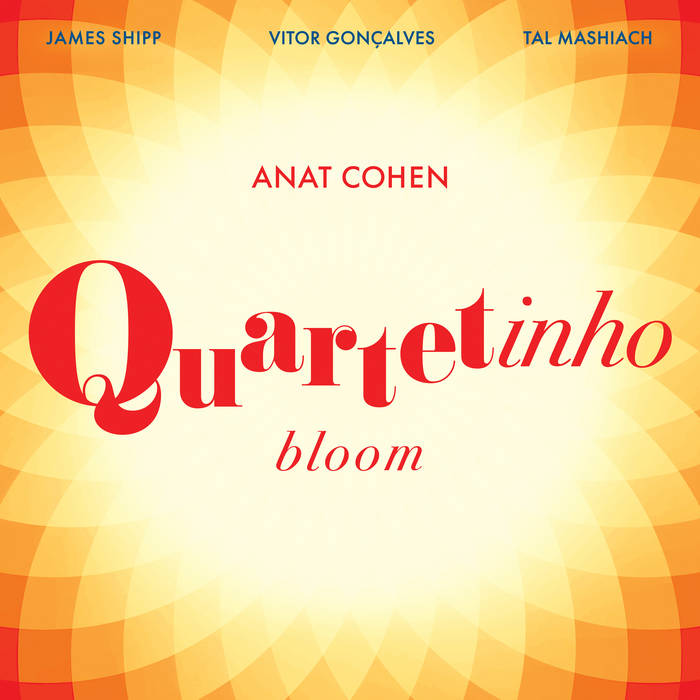
Lawrence: I'm curious about the musical palette of Quartetinho. If one enjoys the music at a surface level, one may not capture the full breadth of the different influences in that music. It seems like your take on that music uniquely brings your heritage, learning, and background to it. I wonder if you could talk about the role of intention in the music that you've created specifically for this ensemble.
Anat: Quartetinho—first of all, the band’s name has a Brazilian flavor because Quartetinho means "little quartet." That was the name we chose when we were all playing with the Tentet. One of the band members is Brazilian, Vitor Gonçalves, an amazing carioca accordion and piano player. We all love the music of Brazil. Another Israeli in the band, Tal Mashiach, plays bass and seven-string guitar. And we have Maryland-born James Shipp playing percussion and vibraphone.
This second album that we released, called Bloom, doesn't have any Brazilian songs on it. This band is collaborative—we bring ideas and original music that might have Brazilian influence, but it might also have Thelonious Monk and every person's own influences. It’s very collaborative when we have time to be in the same town and get together to rehearse and work on music like we did preparing to record this album.
We're multi-instrumentalists, so first, we must choose which instruments to play. Should we play piano, bass, percussion, and clarinet? Or should we play accordion, guitar, vibraphone, and bass clarinet? It will be a whole other sound for the band. We get to experiment and try things. We discuss the space within the music, the accompaniment, how we talk a lot about the orchestration of each person’s instrument, and how it supports the band’s sound.
In Bloom, there is a tango, a classical piece by a Paraguayan composer, Agustín Barrios, called "La Catedral." There is Thelonious Monk. There is a song tribute to the great Paco de Lucía called "Paco" that Tal wrote. There's my song, which is kind of six-eight Afro-Cuban but travels through many influences. James’s song “Superheroes in the Gig Economy” has folkloric American roots. Everybody brings their influence, and we try to respect their vision and what they're hearing and find who we are inside the music.
It Always Sounds Like Monk
Lawrence: Tell me about your take on Monk. You mentioned earlier that on Bloom, it was a band record because everybody contributed to compositions and arrangements. But of course, there was another songwriter named Monk who made an appearance on the record.
Anat: From my history as a musician, even when I lived in Boston and played with the Latin jazz scene, Monk would be one of the composers we'd play in Latin jazz. And I was like, "Oh wow, you can take Monk and play it that way." Then other people in the Brazilian scene would play Monk their way, and I'd think, "Wow, Monk, no matter what you do with his songs—you can make it in four and five and seven and different grooves—it always sounds like Monk." Something about his melodies allows you to mess with them, and they don't lose their essence.
My idea when I took "Trinkle Tinkle" was, "Wow, let me try and make an arrangement for Quartetinho where we get away from the swing." I didn't want to play four-four swing because that puts you in a certain headspace. So, I wanted to expand the bar and put it in three. I played with the rhythms, and it took a second for the band to get used to it. But eventually, it became one of our favorite pieces to play because the band was getting more and more swinging inside it. It ended up being a swing song anyway, even though I tried to get away from the swing. It just went back to become what it wanted to become.
Lawrence: Do you remember what your on-ramp was to Brazilian music? What first drew you to it?
Anat: Officially, I fell in love with Brazilian music while living in Boston. I started to play with Brazilian musicians who, like me, came to Berklee College of Music to study jazz. When people are away from home, they start missing home and wanting to play songs from their childhood and songs they love from their own country. I ended up playing Brazilian music with Brazilian people in Boston.
Then I realized, "Wait a second, this is not a Brazilian song. This is an Israeli song." And they're like, "No way. This is a Brazilian song." I realized that I grew up hearing a lot of Brazilian music, but since it had Hebrew lyrics, I thought it was Israeli music. I didn't even realize that there were people like Matti Caspi and Yehudit Ravitz who brought musicians from Brazil, translated whole albums of "País Tropical" and Jorge Ben, and created Israeli versions with the same lyrics but with the same grooves and feel.
So I grew up listening to some of this music, and years later, I realized, "Wow, I feel at home with this music; it is something very natural." I had to pursue it. At the end of 2000, I went to Brazil for the first time. I didn't have any gigs—I just knew a couple of people. I bought a ticket for two months, and everybody said, "But what about your gigs?" And I was like, "It's gonna wait. I feel like I need to go. I need to feel what it is."
I traveled inside Brazil. I spent a lot of time in Rio de Janeiro. I met a lot of musicians. I got inside choro music. I was traveling with the clarinet, even though, at the time, I was still focusing on the saxophone. I became a clarinet player because of Brazilian music, and Brazilian choro music became a big part of my life. My attitude toward music changed; I understood how music belongs to the people and how people connect to it. It's not music just for the musicians to enjoy and for some to sit far away and listen. It was something so inclusive that it changed me as a musician.
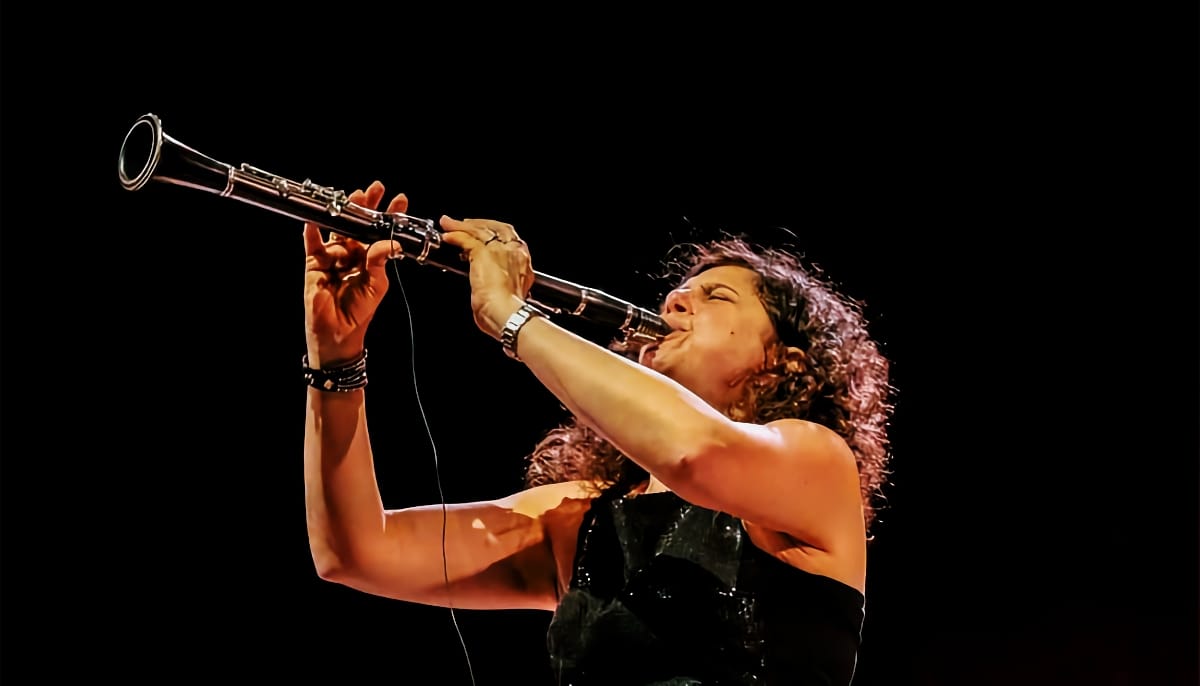
Accept and Listen
Lawrence: I'm curious about a quote I read of yours that said, “Music is the only place where I feel completely safe." That's very profound. Could you talk about that?
Anat: Improvised music is a safe place because you have to be a hundred percent focused in the moment. It's a conversation that nobody's gonna—obviously, and I'm at the point where I can choose who I play with—but people will not point at you and make fun of you. You suggest something, and there's a conversation, and somebody is responding politely or impolitely, and you are having a discussion. You explore and search for new ground, accept, and listen.
Something like that happens inside the music, the band, and on the bandstand, which is very hard to find in regular conversation today. People are too afraid to express their opinions, and it’s not safe to just say what you think anymore because if you meet somebody with an opposite opinion you’ve crossed a line, and that's it.
Inside music, you can be who you are. You can be vulnerable. You can be funny. You can be loving. You can be aggressive. Music reveals all areas of emotions and exposes you. And I like to play with people I feel safe with, where I can be vulnerable, and they will accept that.
Lawrence: What does the album title mean to you?
Anat: Bloom? We almost wanted to call it "Full Bloom." It's about the band’s process: We got together to play as this band, rehearsed for the first album, and performed our first show on March 7th, 2020.
Lawrence: Oh, no. I just did the math.
Anat: Yes, and then the world shut down. (laughter) Then, we got together over a few months and rehearsed and prepared to become a band. We were who we were back then. Then we didn't see each other for a year and a half and recorded our first album. We got together after quarantine time and put out our first album two years ago. Then we did some shows, matured, experimented, and learned about each other. So Bloom for me—this album is more like, "Oh, this is a whole other vision of the band." This is the way we are shining right now. We're opening and blooming with who we are in 2024.
During the pandemic, it was a time of "What are we gonna do? We'll never be on stage ever again. It's over." In my mind, I had already said goodbye. I looked at faraway airplanes, thinking, "How romantic—people are sitting and flying. Wonder what they're doing." I loved being a student. I was studying a lot of things while I was in quarantine. I picked up the cavaquinho, the Brazilian ukulele, and studied. I entered university to do my master's. I was taking composition classes and lectures online.
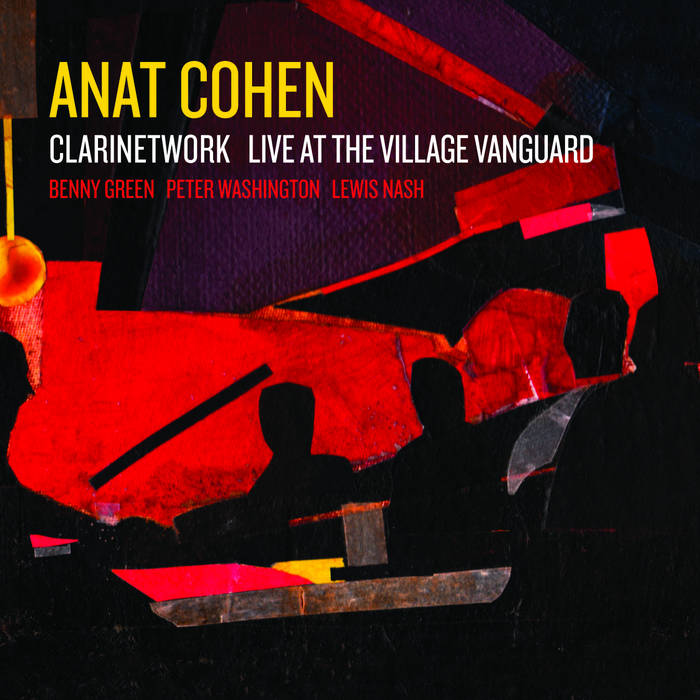
Lawrence: One of the notes in your biography is that you were the first Israeli artist to headline at the Village Vanguard. Is that milestone important to you?
Anat: When I think about playing at the Vanguard, it has nothing to do with where I was born. I feel like I'm carrying a legacy of people—very few people play at the Vanguard because people play for a week, there's only fifty-four weeks, and some people play twice a year, so less than fifty-four people play there every year.
Just the fact that I could headline at the Vanguard a bunch of times with different projects—with my band, with my Anzic Orchestra, with Live at the Vanguard playing with Benny Green, Lewis Nash, and Peter Washington, playing with my quartet a few times, headlining with my brothers, the 3 Cohens Sextet. It's such an honor. The Village Vanguard is, up until today, my favorite place to sit and hear music because it sounds like the records; it sounds like jazz. Sitting at the bar and closing your eyes, you are transported to a different era when just the music exists. There's no bullshit, there's no food service—you're just inside the music.
And I remember sitting with Lorraine Gordon at her spot where she would always sit—the late Max Gordon's wife and then the late Lorraine Gordon. And she was like, "Yeah, and Coltrane would come off the stage, he would walk here, and then he would go"—and she points to where the men's room is—"and he would just keep practicing and playing and playing and playing."
When you play at the Vanguard, when you are on the stage, you feel they're watching—you can feel it, you feel the spirits, they are inside those walls. It's not just another gig. Playing in the Vanguard comes with a lot of responsibility.
Lawrence: You notice the audience is different. Can you tell a Vanguard audience?
Anat: The Vanguard, since it's not known for its lovely hospitality—it's a place you go to hear music. You don't go there just to hang out, have a drink, and chat. If you're not part of the game, you're out. So people usually don't come back if they don't feel like they could just hang out and talk to their friends. If Lorraine was there, man, and you just made any wrong move—she would let you have it. (laughter)
Purchase Anat Cohen and Quartetinho's Bloom from Bandcamp or Qobuz and listen on your streaming platform of choice. Visit Anat Cohen at anatcohen.com and follow her on Instagram, Facebook, and YouTube.
Check out more like this:
 The TonearmLawrence Peryer
The TonearmLawrence Peryer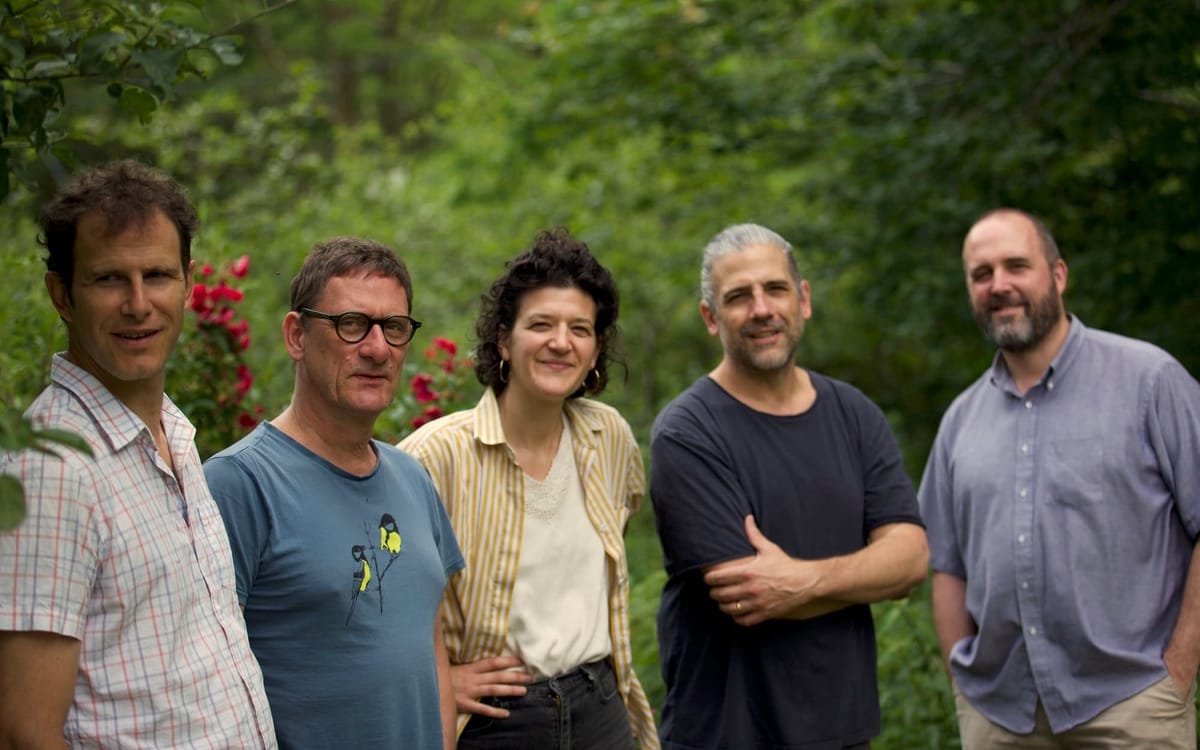
 The TonearmLawrence Peryer
The TonearmLawrence Peryer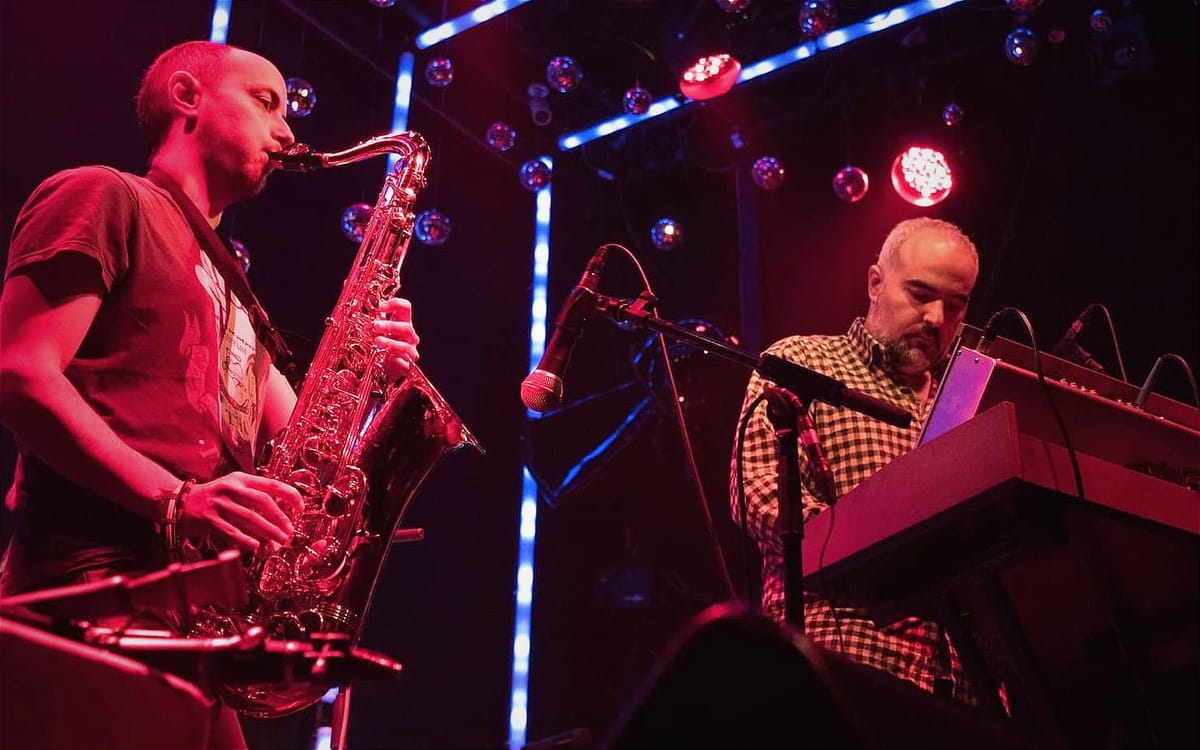


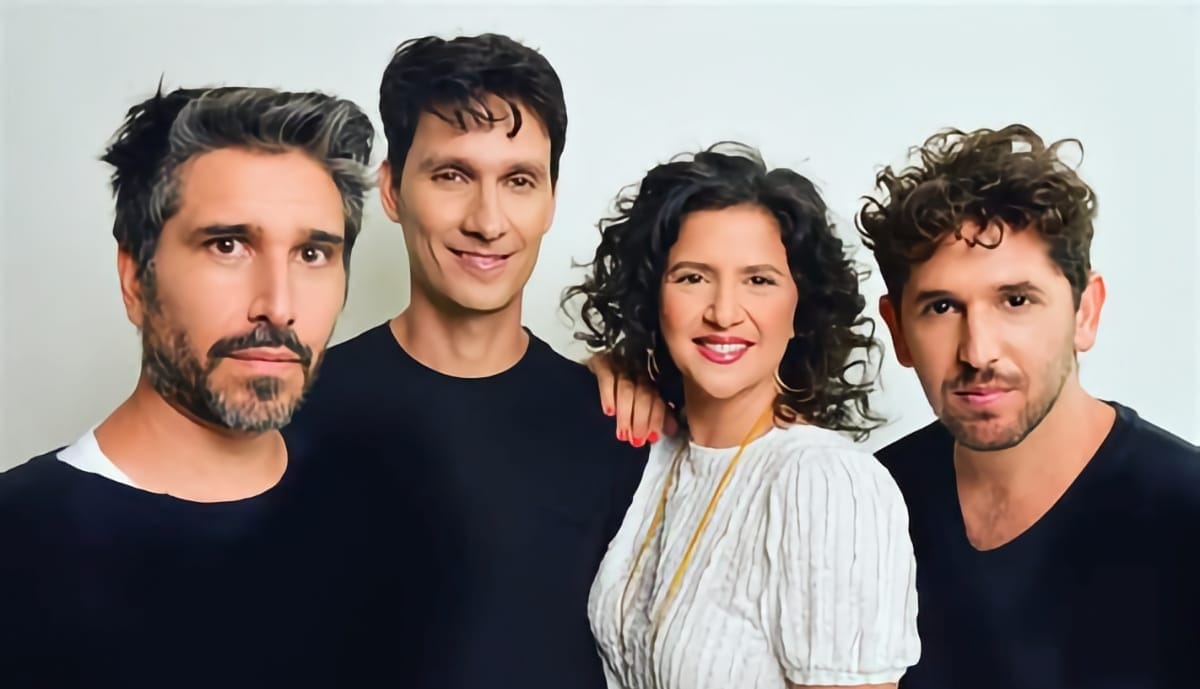
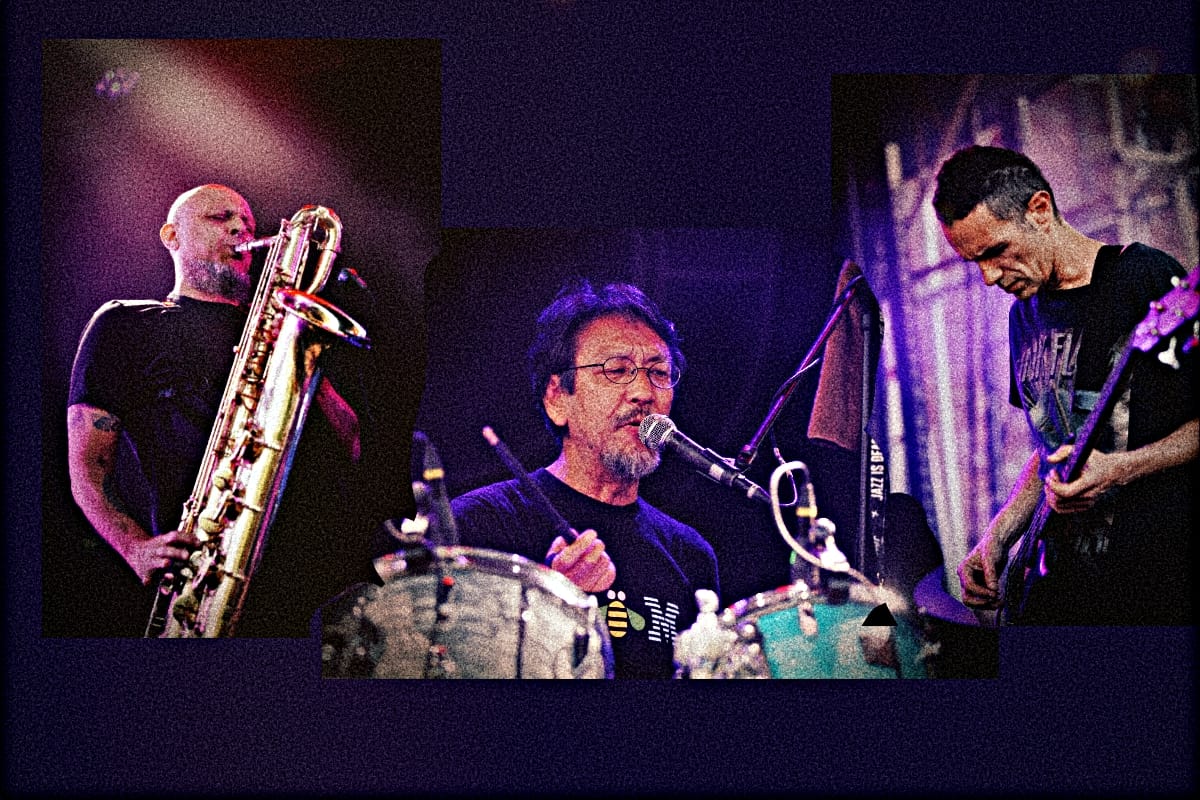
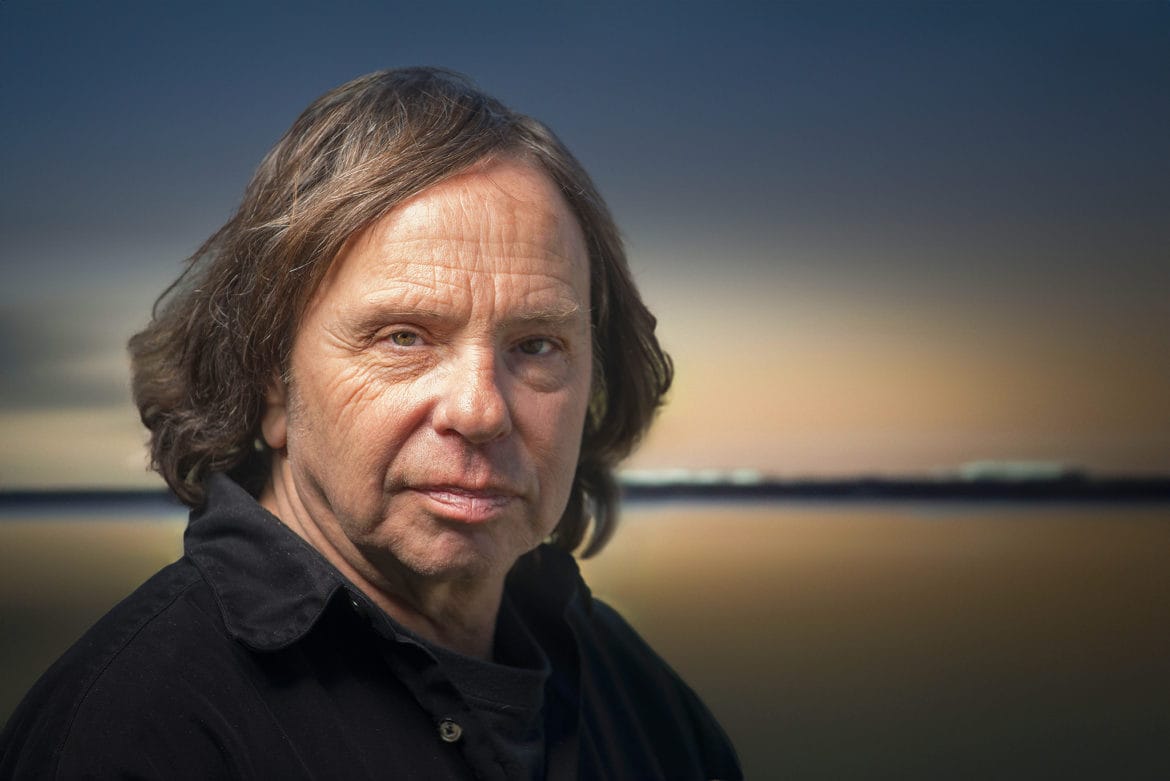

Comments